Indigenous Governance Database
Mille Lacs Band of Ojibwe
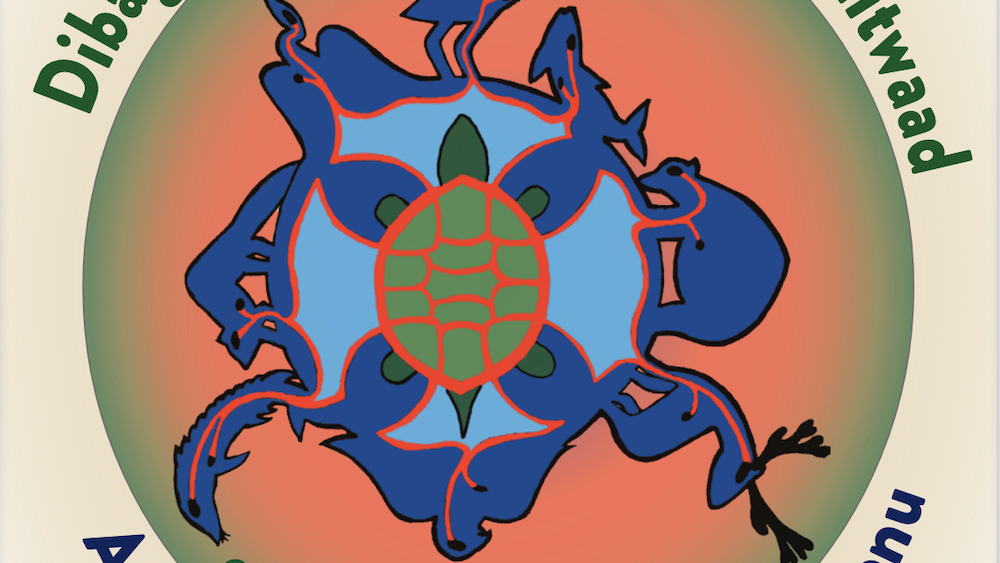
Tribal Climate Adaptation Menu
Climate change has impacted and will continue to impact indigenous peoples, their lifeways and culture, and the natural world upon which they rely, in unpredictable and potentially devastating ways. Many climate adaptation planning tools fail to address the unique needs, values and cultures of…
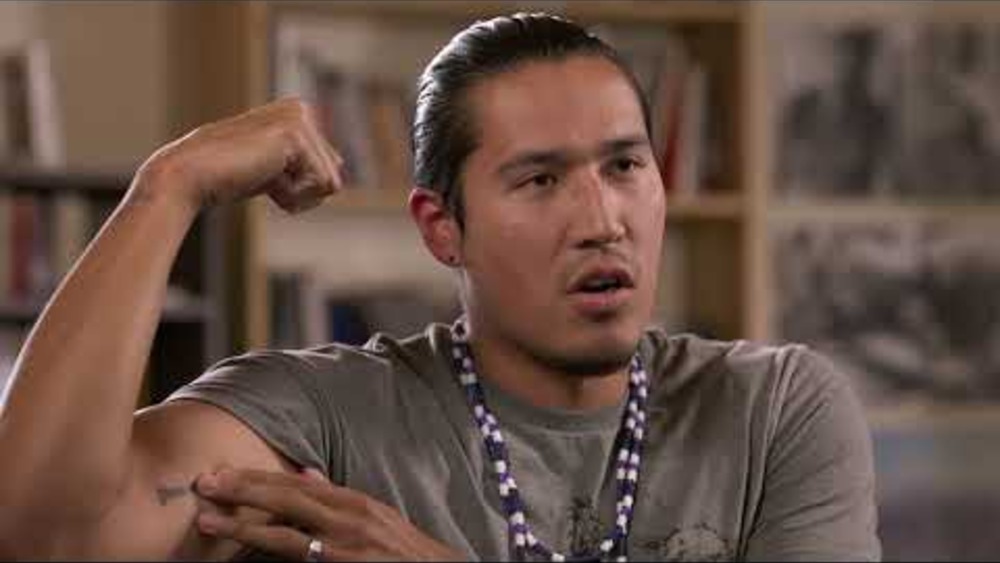
Native Treaties: Making Relations
Historically, intertribal relationships helped to maintain diplomacy and peace prior to the existence of the United States government. How can Native nations’ ethical and cultural values aid in today’s political climate? Produced in partnership with Twin Cities PBS and producer/director Missy…
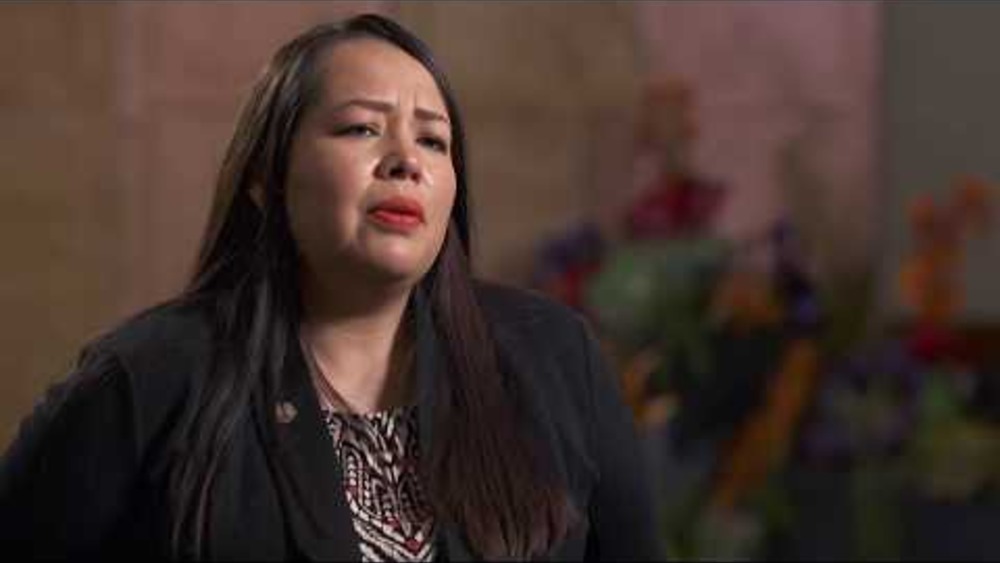
Sovereign Nations: Giving Visibility
Tribal nations have always had formal ways of self-governing. Take a closer look at local Tribes exercising their inherent rights to land, culture, and self-governance in a contemporary context. Produced in partnership with TPT-Twin Cities PBS and producer/director Missy Whiteman. Special thanks to…
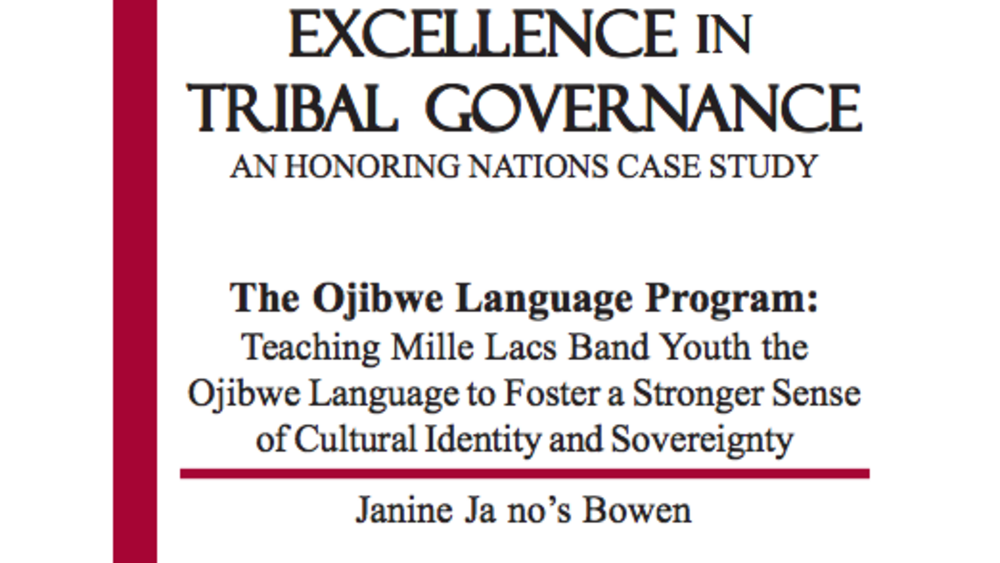
The Ojibwe Language Program: Teaching Mille Lacs Band Youth the Ojibwe Language to Foster a Stronger Sense of Cultural Identity and Sovereignty
As part of its effort to assimilate American Indians into mainstream society, the federal government launched an assault on Native languages. For example, in the 1890s the government built twenty-five off-reservation boarding schools to which many Indian children were forcibly…
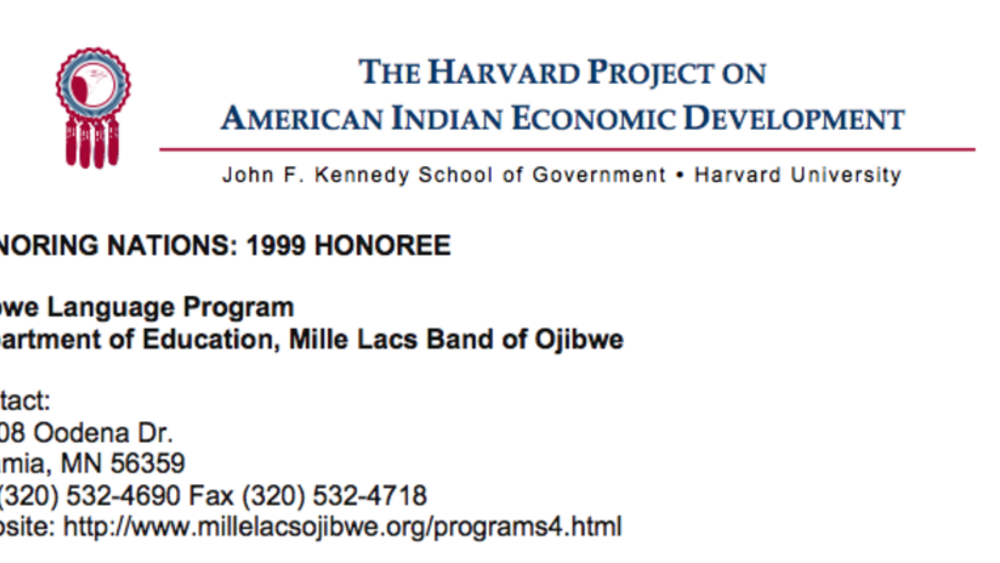
Mille Lacs Ojibwe Language Program
Created in 1995, this tribally funded program serves 350 students (from toddlers to teenagers) and uses elder-youth interaction, song books, and comic books to teach the Ojibwe language. In addition, the Program broadcasts language classes to local public schools in an effort to teach the Ojibwe…
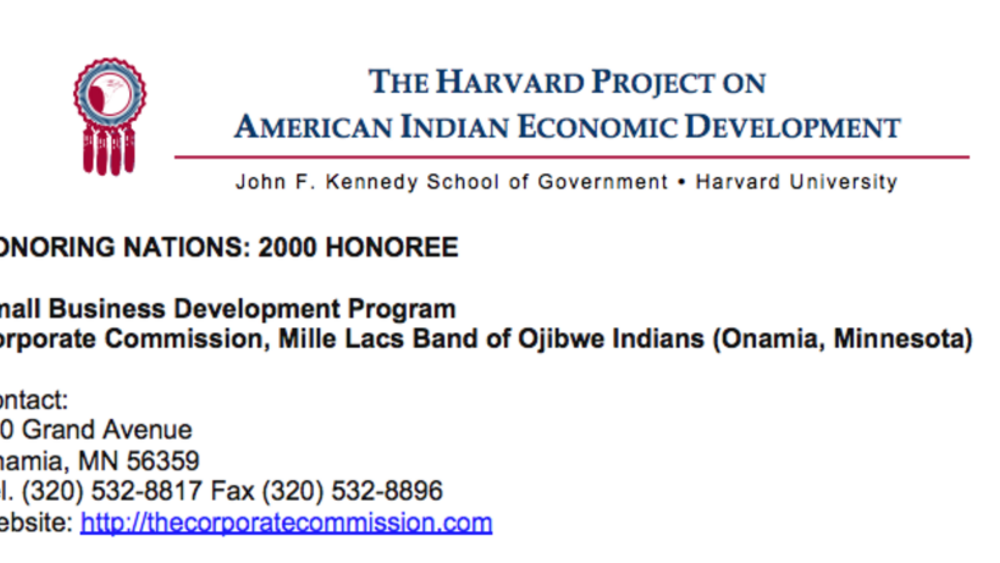
Mille Lacs' Small Business Development Program
The Small Business Development Program assists Band members in developing the private sector economy by providing low-interest loans up to $75,000 to businesses that are at least 60 percent owned and operated by Band members located on or near the Reservation. The Program offers both "micro" loans…
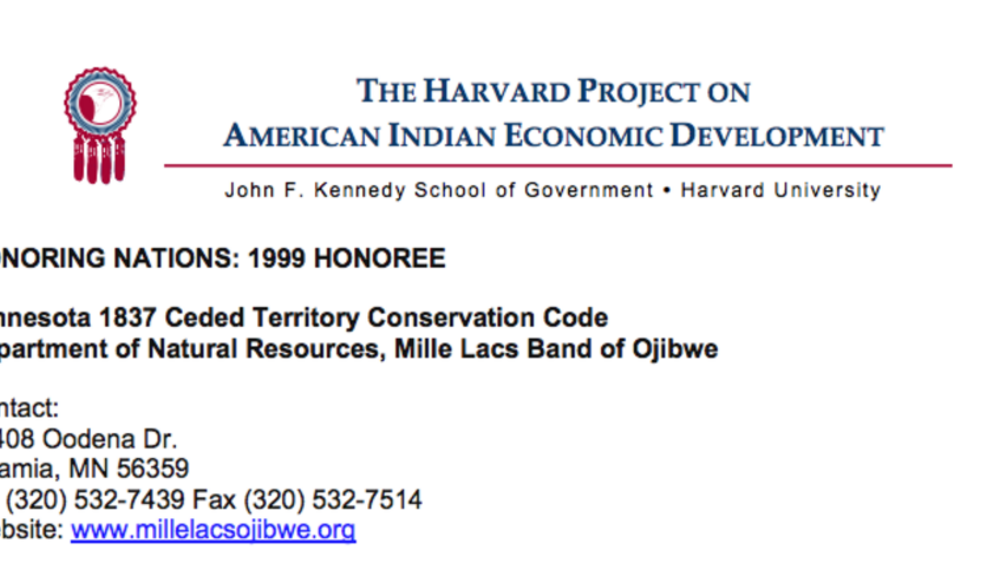
Minnesota 1837 Ceded Territory Conservation Code (Mille Lacs)
In 1997, the Band successfully developed a conservation code that enables the Tribe to exercise its treaty rights to hunt, fish, and gather. The Code sets out detailed hunting and fishing regulations for Band members that protect the natural resources while allowing for the continuation of…

Honoring Nations: Miriam Jorgensen: Achieving Good Governance: Cross-Cutting Themes
Miriam Jorgensen, Director of Research for the Native Nations Institute and the Harvard Project on American Indian Economic Development, shares the cross-cutting themes of good governance that exist among the Honoring Nations award-winning programs.
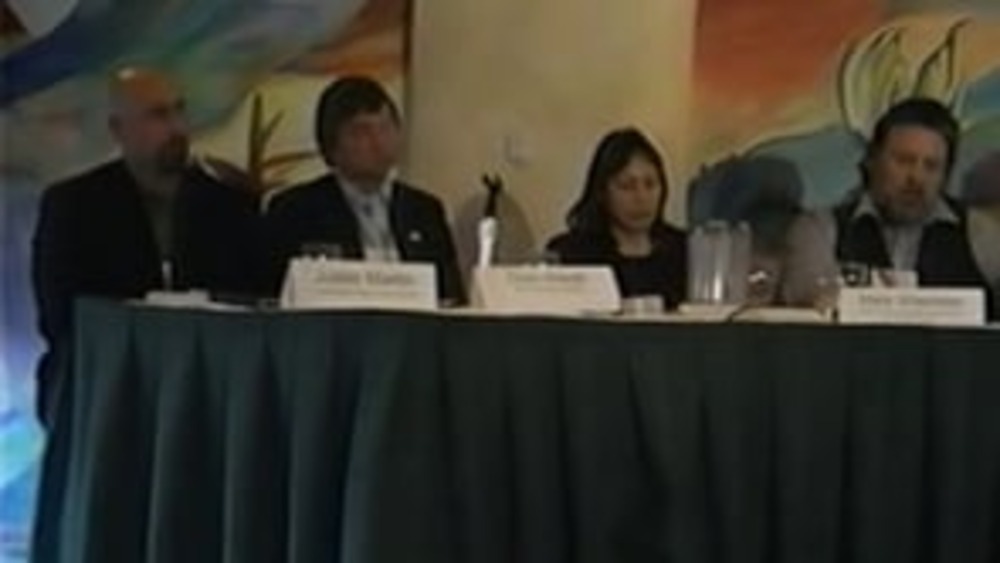
Honoring Nations: Using Partnerships to Achieve Governing Goals
Heather Kendall-Miller moderates this panel of Native leaders for a discussion on building and maintaining intergovernmental relationships.

Honoring Nations: What is Good Tribal Governance and Why is it Important?: Tribal Leaders' Perspectives
Moderator Joseph P. Kalt facilitates a rich discussion by an impressive panel of Native nation leaders about the role leaders play in building and sustaining successful tribal programs.
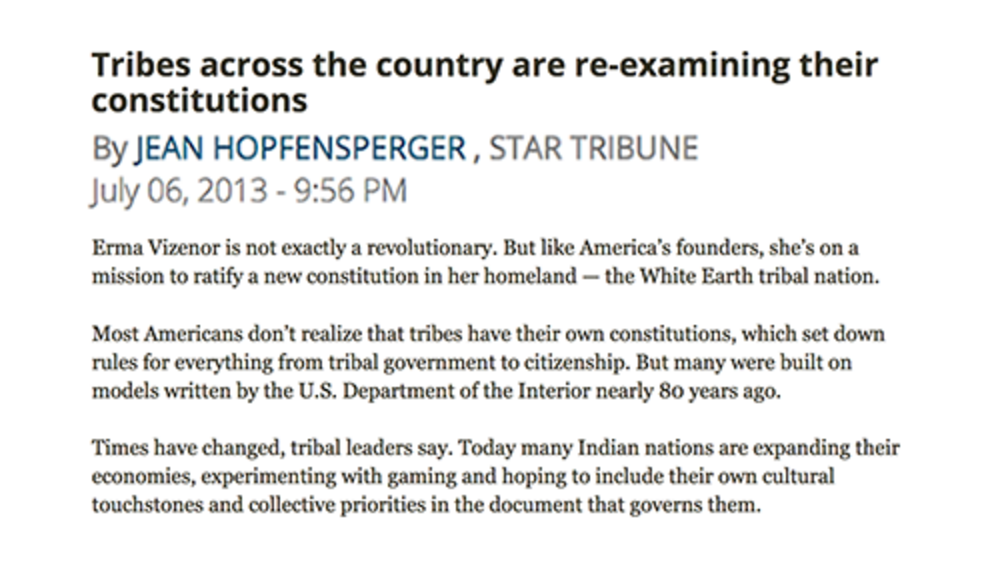
Tribes across the country are re-examining their constitutions
Erma Vizenor is not exactly a revolutionary. But like America’s founders, she’s on a mission to ratify a new constitution in her homeland – the White Earth tribal nation. Most Americans don’t realize that tribes have their own constitutions, which set down rules for everything from tribal…
